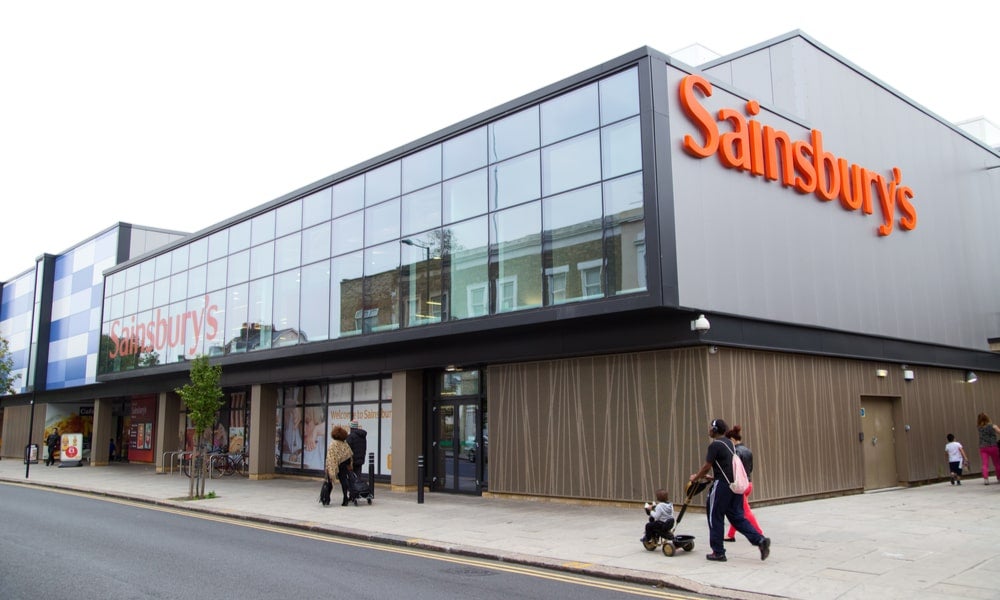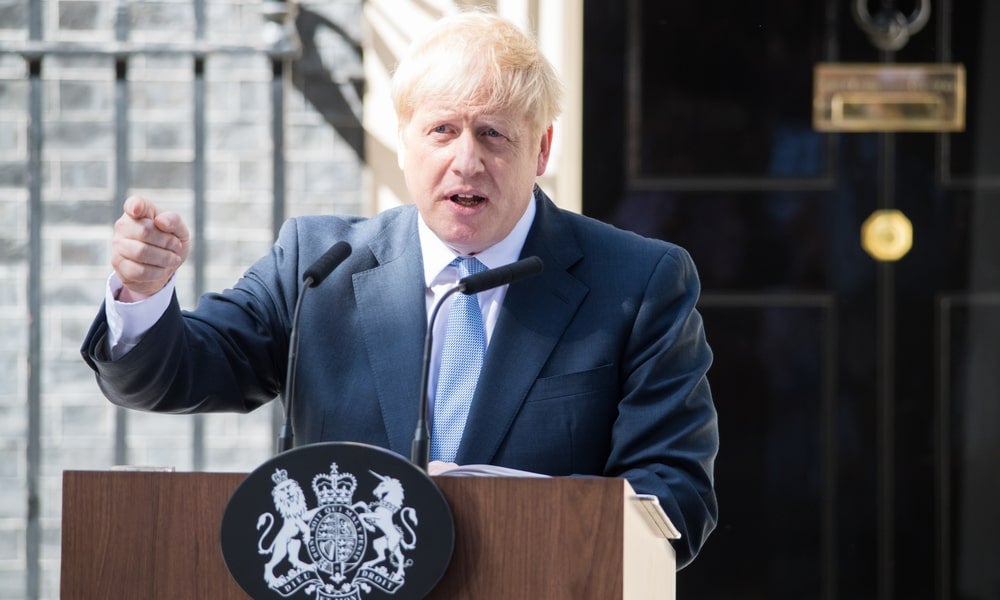3 lessons from the GFC in how to lead through the coronavirus crisis
There are three lessons to be learned from the GFC that will help leaders in managing through the coronavirus crisis, according to a UNSW Business School expert.
Frederik Anseel, Associate Dean of Research for UNSW Business School, was in Belgium during the Global Financial Crisis and was actively involved in studying the performance of employees and leadership success in the finance sector when the GFC hit.
“We coincidentally were tracking people’s performance trajectories in a large bank when the financial crisis hit,” he said.
“This means we were able to collect data on how people personally experienced a personal job crisis as a result of the financial crisis.
“We followed them for seven years, in the lead-up towards the crisis, throughout the crisis and after the crisis, so we’ve learned some things about how to lead effectively through a crisis and It’s important to think about these issues now.”
Anseel recently spoke as part of an AGSM webinar on Leading Through Times of Crisis: Resilient people, plans and processes together with UNSW Business School's Professor Nick Wailes, UNSW Medicine's Professor Raina Mcintyre and Ben Pronk, course leader for AGSM Adaptive Leadership in a Complex Environment at the UNSW Business School.
His research, conducted in conjunction with a large European bank tracked performance trajectories of 790 employees, seeking to understand what factors affect recovery after a crisis.
Avoid hero leadership and keep it real
In times of crisis, leaders often revert to a leadership state which is less focused on people and more focused on operations and business continuity.
“There’s a risk that a lot of managers could approach the crisis as an operational issue; a problem that needs to be solved,” he said.
“Business continuity is, of course, extremely important and leaders need to keep their operations going and get their organisations through this crisis financially.”
However, in this process there is a risk that leaders can lose track of the human dimension of their response.
“This is a concern because you’re working with people, you’re working with your own employees, and you’re working with customers,” he said.
“All these people have their own worries and their concerns; because there is a health crisis, people are worried about family members getting sick and they are concerned for children, parents and grandparents.”
Employees expect leaders to provide a future-focused perspective on managing through these risks and uncertainties, Anseel explained.

“This is an important point that a lot of leaders risk forgetting in this situation,” he said, “try to paint a clear picture how life will look like when we get out of this and what steps we need to take to get there”.
One of the key research findings about how employees recovered from the GFC was the support they got from their leaders.
“It’s not so much about giving clear directions about what people need to do,” he said.
“It’s more about how much trust they had in their leaders and immediate managers and how they felt supported and understood.”
“So, managers need to show empathy and compassion and understand what sort of difficult situations people and their families are facing.”
Leaders need to focus on helping employees through the immediate situation first, but also help the workforce think productively about the future and help paint the vision of how the organisation will navigate through the crisis and beyond.
Anseel’s research found that people who were able to maintain this future focus throughout the crisis experienced a much steeper recovery in terms of performance post-crisis.
Stick to your values
In recent years there has been a shift towards purposeful or values-based leadership, wherein companies and their leaders define, communicate and role model certain values and behaviours specific to their organisation.
“They will say, ’employees come first’ or ‘customers come first’ or ‘we are respectful’ or ‘we have empathy’.
“When a crisis comes up, like we have now, this is a real test to see if you enact on those values,” he said.
“I already see a lot of leaders actually quickly forgetting about those values.
"A crisis brings out what you really believe in, and every decision is now a test of your values and your employees are watching very closely to see what you do.
“This will be very important, and now is the time to show that these values are not just statements on paper, but people will be looking at the behaviour of leaders and whether they are actually role-modeling espoused values,” said Anseel.
He gave the example of UK supermarket chain Sainsbury’s, which has been under significant pressure to look after certain customers in a challenging environment.

Sainsbury’s CEO Mike Coupe has taken a lead role on this with proactive and helpful initiatives and communications to its customer base.
One of the first steps the chain took was to make time slots available exclusively for elderly customers.
Another step Coupe was to assist healthcare workers, said Anseel: “Nurses, doctors and other medical personnel working at the NHS are working long shifts, 12, 14 or 16 hours a day.
“When these workers come out of the hospital, they need to go shopping – but people have been hoarding and a lot of items might be sold out.”
Coupe recognised this as an important issue which Sainsbury’s needed to assist with, and the supermarket then made a separate time slot available for people working for the NHS.
Two days later, Coupe sent another email to customers which acknowledged that the supermarket was listening and responding to customers, and that, on the basis of the comments they received, Sainsbury’s was changing the shopping time slots to be more optimal for health professionals.
“So, what did they demonstrate is this idea that we need to be supportive, that we need to have impact in society and that we need to service customers,” said Anseel.
“They showed that they’re doing this, but they also showed they’re listening, and that they’re able to pivot quickly then and to adapt quickly.
“I think that is a real sort of leadership that we need in these times.”
Make communication clear and concise
Another key finding of Anseel’s research into managing through the GFC was that communication from leaders needs to be clear and concise in order to help people better understand that they need to do.
In observing communications from organisations in other countries, Anseel said that sometimes their recommendations have been quite abstract and vague.
“Sometimes what I see at leadership levels is sending long emails with all sorts of recommendations; that is very difficult to digest because people have an information overload,” he said.
Instead, leaders need to focus on making things easy-to-understand, recognisable, very concrete, and easy to implement.

Some leaders recommend “Use common sense. Be prudent” – but this is a once-in-100-year disaster, and Anseel said commonsense does not work in these exceptional times.
When announcing social distancing measures, for example, UK Prime Minister Boris Johnson illustrated very clearly how to be concrete: “You should not be meeting friends. If your friends ask you to meet, you should say no.”
Another useful tool in helping to manage through a crisis is storytelling and creating vivid stories about situations and potential effects.
Anseel gave the example of a recent press conference where they spoke about the importance of social distancing.
“They spoke about a dinner party where one person was infected and by the end of the dinner party, 12 people around the table were infected: that makes people think,” he said.
“That is a completely different sort of story to a basic recommendation that you need to keep distance, so business leaders need to do the same thing.
“They need to adjust their tone and their style and emails, and make it much more realistic and concrete, rather than having vague recommendations,” said Anseel.
Communication is a two-way process, and his research also highlighted the importance of listening in order for leaders to be able to respond effectively.
“What is missing in a lot of approaches now is listening,” he said.
“People want to communicate, and they’ve learned they need to communicate clearly, communicate quickly and often.”
“The problem is now that everyone is sending out messages, nobody’s listening – so you need to show that you’re listening and devise channels for this.”
After putting these in place and receiving feedback, Anseel said it is important to take action and potentially change course if people are concerned about something.
“Simply saying that you are listening is not what people need. They need to see you taking concrete action on the basis of feedback. That shows that you’re really listening,” he said.
A podcast of the Leading Through Times of Crisis: Resilient people, plans and processes is available online and Anseel’s presentation is also available online. Organisations interested in tracking and understanding how their employees are coping throughout the crisis can get in touch with Frederik Anseel via email.
